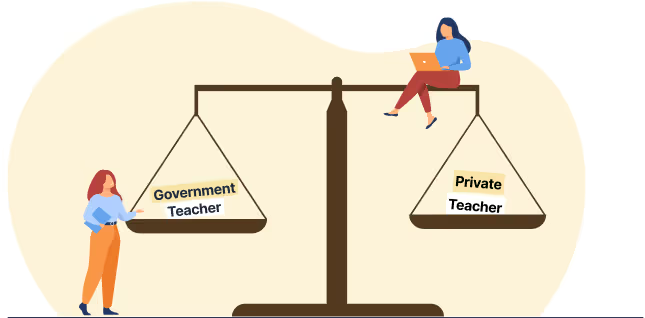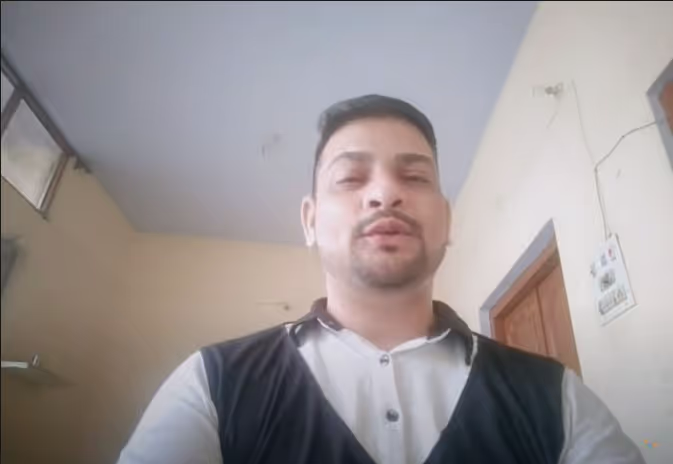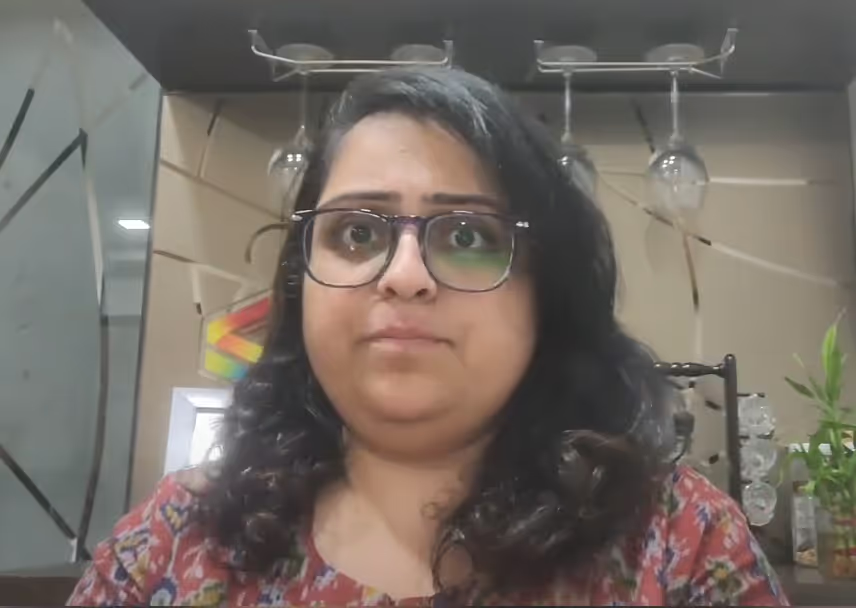In India, the teaching profession is divided into two broad categories:
- Government Sector
- Private Sector
Each sector allows various job opportunities and is categorised into level-specific education starting from pre-primary to higher secondary and positions in special categories as well. Let’s understand the
difference between the Government Teaching sector and the Private teaching sector in detail.
Government Teaching Sector V/S Private Teaching Sector in India

What is a Government Teacher v/s What is a Private Teacher?
Government Teachers are employed by the government to teach in public schools & other educational institutions. Their salary, benefits, and job security are typically determined by government regulations and policies. They are also required to have specific qualifications and certifications to teach in their respective fields.
On the other hand, a private teacher is a teacher who is employed by a private school, tutoring company, or an individual. These teachers are typically not subject to the same regulations and policies as government teachers. Still, they are required to have certain qualifications and certifications depending on their employer's requirements.
The main difference between a government teacher and a private teacher is the nature of their employer and the regulations and policies that govern their employment. Now let’s understand how you can become a private teacher in India and how you can become a government teacher in India.
How to become a government teacher in India v/s how to become a private teacher in India?
The basic eligibility criteria for applying as a government teacher are graduation and a degree/diploma in education. A candidate must also have cleared the Teacher Eligibility Test (TET) at the central or state level.
 Book a 1-on-1 Call
Book a 1-on-1 CallAfter qualifying the TET/CTET, candidates are required to apply for teacher recruitment notifications issued by the respective state governments. The recruitment process usually involves a written examination followed by an interview. The candidates are then shortlisted on the basis of their performance in written examination and class demo/ interview/skill test put together. This answers our question how to become a government teacher in India. Now let’s talk about the private sector.
Private schools, on the other hand, have variable standards across the country. Teacher vacancies in private schools are often released via notification from the institution, followed by a hiring process which can include interviews, demo classes, etc.
Private schools in India do not mandate B.Ed/B.El.Ed qualifications for teaching positions. Other teaching qualifications including diplomas are widely accepted by private schools.
Many Suraasa-trained teachers are earning higher than standard average salaries in private schools with
PgCTL (a diploma in teaching) and no B.Ed,
check their stories here.
"I got promoted to the 2nd Incharge of the school with a 40% increment in my salary."

Amzad Khan
PgCTL Learner (Batch 39)
"I was recently offered a teaching job with almost 50% salary hike."

Tulsi Dutta
Pre-primary Teacher
Choosing between becoming a Government Teacher v/s becoming a Private teacher
It cannot be argued that in most cases, private schools provide better hygiene, environment, and infrastructural facilities to the children. Additionally, private schools have better management and limited batch size for each class.
On the other hand, government schools are considered better in terms of stature & stability. Government jobs also come with perks such as accommodation facilities, child-education benefits, pensions, etc.
It totally depends upon the candidate who is looking for a teaching job & their future in teaching. While many may choose private school teaching, there are also a lot of candidates who are putting in a lot of hard work to get selected as government school teachers. Therefore, the ultimate choice is of a TEACHER!
Here’s a tip: try becoming a good teacher
(Read FAQs) and build it up from there!
Did you know that you can become a teacher right after you graduate or completion of your higher secondary education? You can work as an
Assistant Teacher or take a teaching internship. Read more about it in the
FAQs section.High-Five! You're one of the 14% who knew this!
Voila! You just leveled up with this new piece of knowledge!



 Book a 1-on-1 Call
Book a 1-on-1 Call
 Book a 1-on-1 Call
Book a 1-on-1 Call

 Book a 1-on-1 Call
Book a 1-on-1 Call







